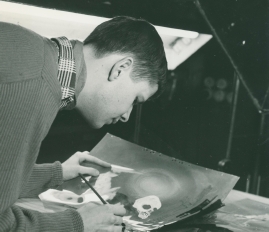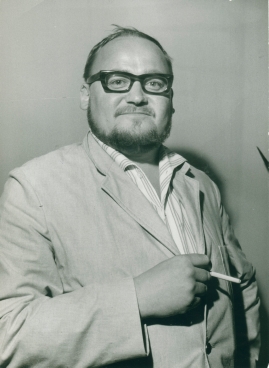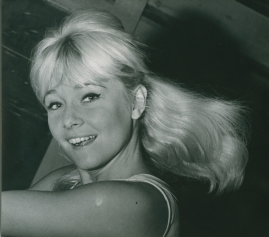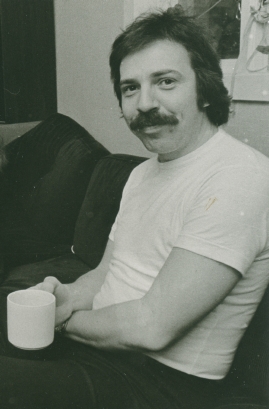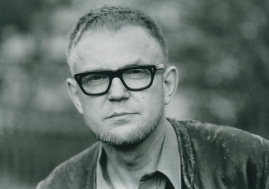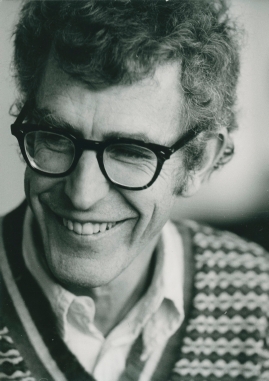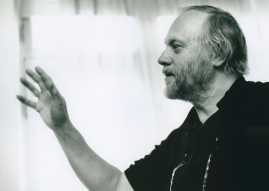Peter Kylberg
Table of contents
- Basic facts
- Links and resources
- Biography
- Awards
- Films
- Original work
- Soundtrack listing
- Groups
Basic facts
Media (1)
| Director |
|
|---|---|
| Screenplay |
|
| Show all films |
Biography
Swedish director, artist and composer. Born as Jan Peter Henrik Kylberg in Stockholm.-An experimental filmmaker who has tried to combine pure experimentation with commercial cinema and television films, Peter Kylberg is also a painter and composer. In the 1960s he was regarded as an artistic wunderkind whose fall from grace was accentuated when his debut feature Jag ('I', 1966) was not deemed to live up to the highly inflated expectations his audience had of him.Kylberg (whose great uncle was the colourist painter Carl Kylberg) made his debut with an...
Biography
Swedish director, artist and composer. Born as Jan Peter Henrik Kylberg in Stockholm.
-
An experimental filmmaker who has tried to combine pure experimentation with commercial cinema and television films, Peter Kylberg is also a painter and composer. In the 1960s he was regarded as an artistic wunderkind whose fall from grace was accentuated when his debut feature Jag ('I', 1966) was not deemed to live up to the highly inflated expectations his audience had of him.
Kylberg (whose great uncle was the colourist painter Carl Kylberg) made his debut with an exhibition at Stockholm's Sturegalleriet in 1957 with a macabre collection of pictures of massacred human bodies. Later on he joined Svensk Filmindustri, whose head Carl Anders Dymling gave him carte blanche in the drawing studio at Filmstaden. The upshot was the abstract animation Kadens ('Cadence', 1960), screened at the 1961 Berlinale and highly praised in Sweden by the film critic Bengt Idestam-Almquist. He also found a mentor in Ingmar Bergman, who advised him not to compose the soundtracks for his own films, but Kylberg would not be moved and went on to explore his own concept of filmmaking as a one-man affair. The string quartets and piano concertos he composed for his films were influenced by the atonal compositions of Arnold Schönberg.
Kadens was awarded funding by the Swedish Film Institute, as was En kortfilm av Peter Kylberg ('A Short Film by Peter Kylberg', 1963), with cinematography by Rune Ericson. In 1963 when Kylberg was living in Paris he made the "city symphony" Paris d-moll ('Paris in D Minor', 1964) together with cinematographer Willy Kurant and producer Philippe d'Argila. The film was awarded the Swedish Film Institute's Quality Grant, and lavish praise was showered on "our young avant-gardist". Kylberg waded into the debate surrounding the new Film Institute, crossing swords with its founder Harry Schein over experimental filmmakers' right to funding. The schism was probably to Kylberg's detriment: Schein was sceptical of his feature film debut, labelling Jag as "artistically unnecessary". The film was a coproduction, the first of its kind, between the Film Institute, Sandrews and Svensk Filmindustri. Prior to its release, the newspapers were hailing it as the most advanced film ever made in Sweden. Critical reception of Jag was partially positive, but what some referred to as the film's "centrally-lyrical egocentrism" irritated many others intensely. A debate began as to why the Film Institute had funded an introspective, audience-hostile film. The upshot for Kylberg was that his next project with the Swedish Film Institute was only a short: "Konsert för piano, två ansikten och en fortsättning" ('Concerto for Piano, Two Faces and a Continuation', 1968), a project which was subsequently mothballed. After that, Kylberg became persona non grata in the eyes of Swedish film companies.
Having spent some years working in national broadcaster Sveriges Radio's Colour Television group Kylberg got involved in research at the Royal Institute of Technology in Stockholm and later travelled to Switzerland to make the television film Opus 25 (1980), his contribution to the debate about energy and nuclear power. Lisbet Gabrielsson, short film producer at the Swedish Film Institute, supported Kylberg's experimental film Du ('You', 1986), an attempt to marry scientific research and the media of film within the narrow confines of a chamber drama. Gabrielsson also produced F-42 (1992). In 1996 the FilmTeknik laboratory produced the feature I stället för ett äventyr ('Instead of an Adventure'), a social commentary expressing manifest anger at the commercialisation of film and the media, which attracted mixed reviews.
Lars Diurlin (2011)
(translated by Derek Jones)
Films
| Director |
|
|---|---|
| Screenplay |
|
| Director of Photography |
|
| Music |
|
| Production Designer |
|
| Film Editor |
|
| Animation |
|
| Cast |
|
| Musical Arrangement | |
| Performer |
|
| Instrumentalist |
Soundtrack listing
| By | |
|---|---|
| Composer |
